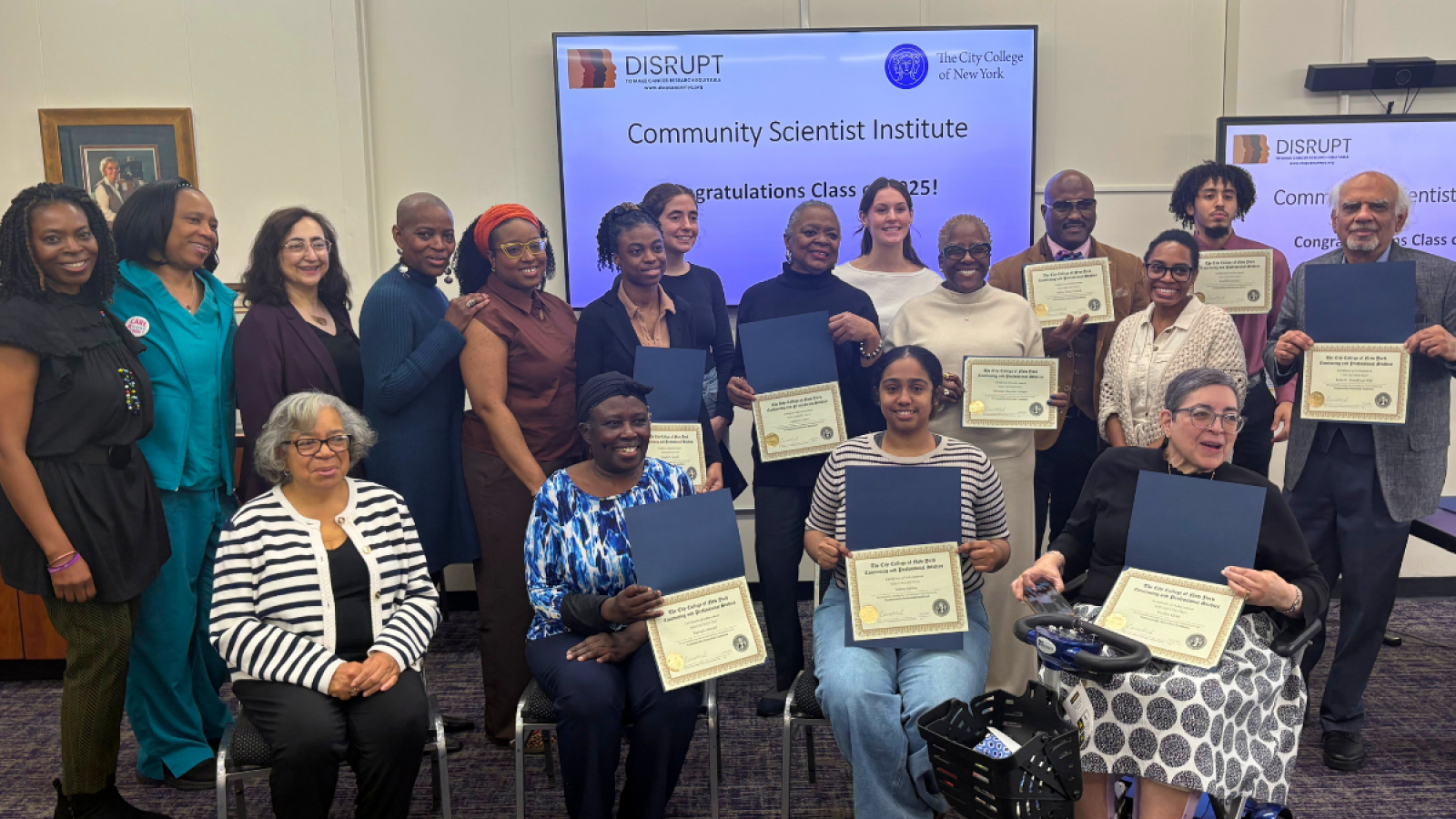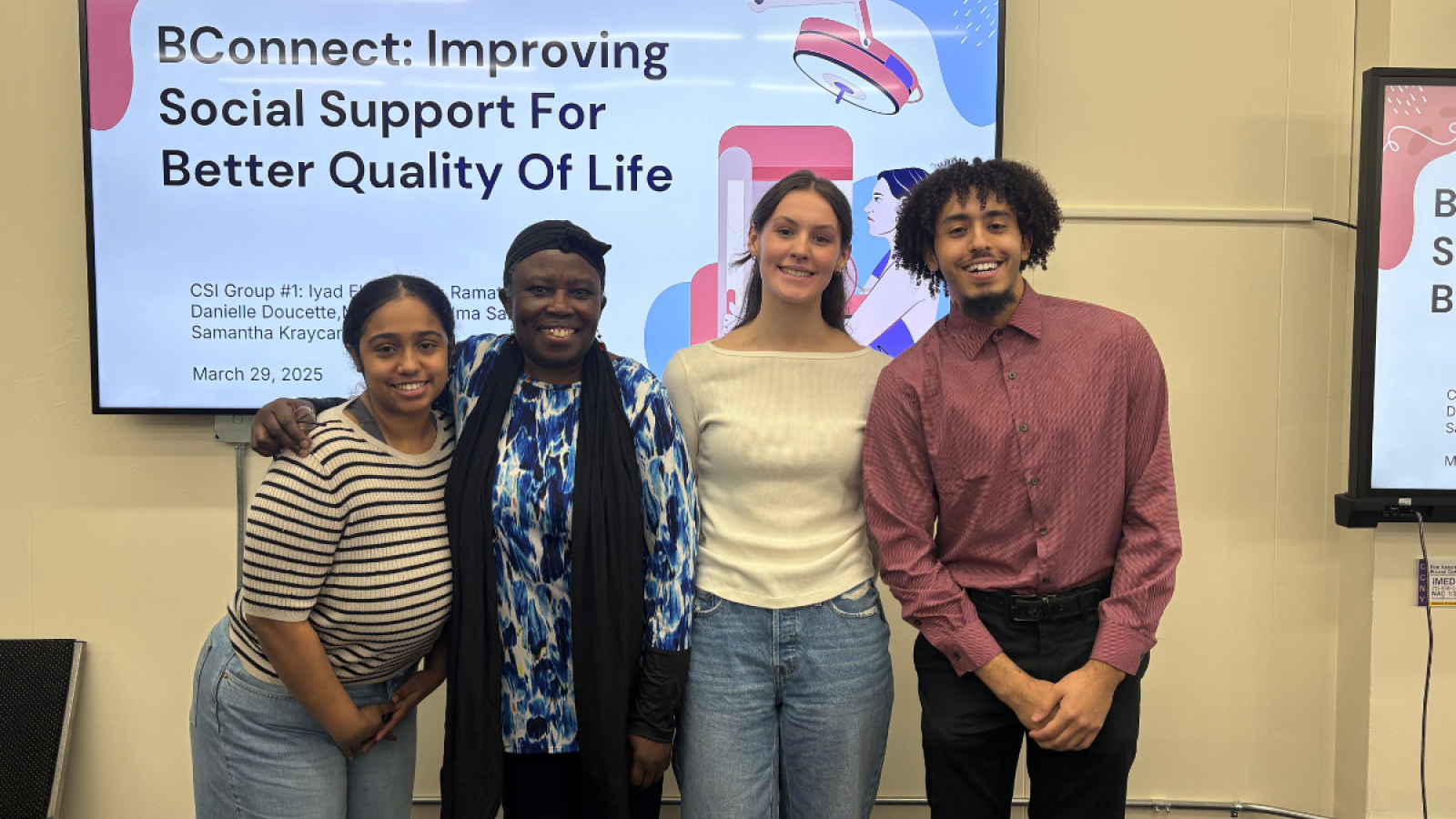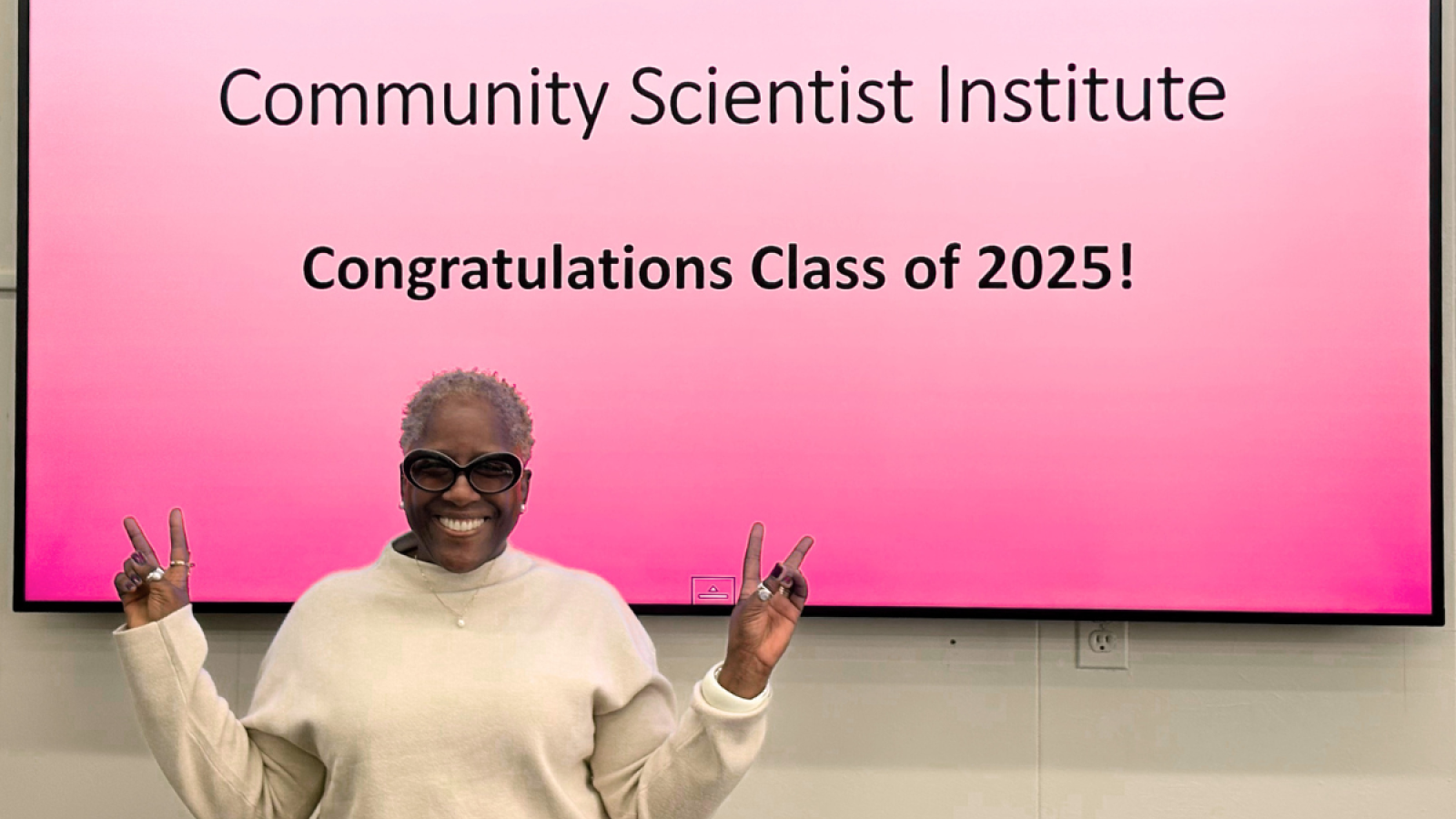Community Science Graduates Empower NYC to Fight Cancer
On March 29, a cohort of 14 graduated from the 2025 Community Scientist Institute (CSI) in Upper Manhattan. Over the course of the previous eight weeks, these 'community scientists' met at The City College of New York (CCNY) every Saturday to learn to use clinical and translational research tools and their own unique roles in their communities to advocate for better cancer outcomes in New York.
The CSI is offered annually through the Herbert Irving Comprehensive Cancer Center (HICCC) DISRUPT grant and the Continuing Education Program at The City College of New York. Taught by faculty and researchers from across New York health institutions, including Columbia, CCNY, Montefiore Einstein, and Mount Sinai, community scientists learn about the world of cancer research, clinical trials, translational science, and the importance of community partnership in research.
Desiree Walker, founder of the CSI and HICCC Community Advisory Board member, opened the final day of the course with a powerful story on the importance of community engagement in cancer research and clinical trials. In sharing the story of a patient who was unable to join a potentially lifesaving cancer clinical trial because she wasn’t aware of it at the time, Walker reminded students of the many societal factors that can influence cancer outcomes.
“Where you live matters in terms of what your cancer experience is going to be,” Walker said. “We tell these stories so the students can better understand and represent the urgent need for community-based interventions in addressing cancer disparities.”
Before receiving their graduate certificates, class members shared their final projects in groups, which consisted of creating a theoretical study of their choice to address inequitable cancer outcomes among different populations. The mock research projects ranged from testing a mobile app to increase enrollment in breast cancer clinical trials, to reducing the growing trend of early-onset colorectal cancer in Black men through community education and empathy training.
Many CSI participants work in healthcare professions or serve on their local community boards, yet the personal toll of cancer remains strong as graduates and alumni shared their stories during their final presentations and ceremony.
CSI alum, Maria Davis, initially began health advocacy work in her community as an AIDS survivor. After seeing the unhealthiness, along with the mistrust of the medical system from her peers, she shifted her focus to cancer. “We’re the trusted voices of our community,” Davis says. “When I come back to my community with the things I learned from the CSI, maybe they’ll trust that information more coming from me. The CSI is charging us to go back to our communities with the resources to create better, healthier worlds.”
Other participants, such as Iyad Elbouanani, a pre-med student at CCNY, view the CSI as a valuable method for career growth. “I wanted to hear the stories from my community early on, so I can be the best physician I can be in the future. It’s just one of the tools I’m gathering to understand the need of my patients later in my career.”
After the final presentations, graduates received their diplomas as newly appointed community scientists and celebrated with each other and alumni of the program.
“The hope," shared Nicole Bayne MPH, RN, Lead Program Coordinator of the CSI, “is that CSI graduates will use their knowledge to partner with researchers, infusing their unique perspectives into the work, to advocate for the needs of their communities.”




